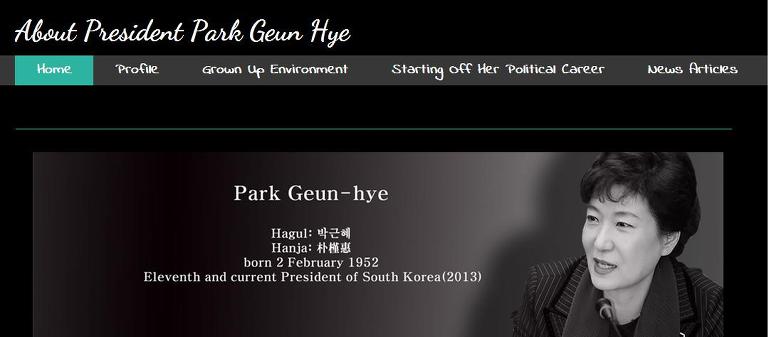President Park Geun-hye placed 11th on Forbes’ list of the world’s 100 most powerful women this year.
It is the first time Park has made it onto the annual list by the U.S. economic magazine. She is also the only Korean on the roster.
Forbes introduced the 61-year-old Park as South Korea’s first female president, having been elected with Korea’s highest turnout rate in 15 years.
“This is her second ‘term’ in the presidential office. Her father, Park Chung-hee, was president for 18 years, and at age 22 she became de facto first lady after her mother was killed by a bullet intended for her husband,” Forbes said.
Park presides over the world’s 15th-largest GDP at $1.15 trillion but its export economy is being challenged by China and Japan as well as international anxiety over North Korean brinksmanship on the Korean Peninsula, it said.
North Korea has blamed her “venomous swish of skirt” for the tensions between the two countries, Forbes added.
The top spot was taken by German Chancellor Angela Merkel for the third consecutive year. Merkel has earned the top spot for seven of the past 10 years from 2006.
She was followed by Brazil’s President Dilma Rouseff.
The top five were completed with Melinda Gates, who co-chairs the Bill and Melinda Gates Foundation with her billionaire philanthropist husband, U.S. first lady Michelle Obama and former U.S. secretary of state Hillary Clinton.
Among 10 most powerful women were Facebook COO Sheryl Sandberg; International Monetary Fund managing director Christine Lagarde; U.S. Secretary of Homeland Security Janet Napolitano; Indian National Congress President Sonia Gandhi; and PepsiCo CEO Indra Nooyi.
Korea's First Female President Park Geun-Hye
Information of Korea's first female president Park Geun-Hye
2013년 5월 30일 목요일
2013년 5월 24일 금요일
2013년 5월 3일 금요일
Park Geun-hye’s Leadership and South Korea’s Challenges
In the first month since Park Geun-hye’s inauguration as South Korea’s first woman president, she faced an external security environment that she characterized the day after her election as “grave.” In addition, her administration has gotten off to a slow start due to unexpected internal constraints associated with a government reorganization plan that has been hung up in South Korea’s National Assembly. CFR’s Program on U.S.-Korea Policy is featuring two parallel essays by prominent South Korean scholars that provide deeper analysis of the internal and external challenges Park faces as president.
Park In-hwi of Ewha Women’s University provides an important explanation of changes in South Korea’s National Assembly that were intended to promote bipartisanship but may instead result in administrative gridlock. Legislative wrangling over Park’s government reorganization plan tied the hands of the government for almost a month following Park’s inauguration. The delayed passage of this plan combined with her administration’s own failures to adequately vet candidate selections for top administration posts has weakened Park’s popularity and lowered public expectations for her political leadership. Another worrisome factor that might constrain Park’s leadership is the apparently deep political disaffection with Park among South Korea’s younger generation. If a political issue emerges to turn apathy into opposition, there is a real possibility that street demonstrations similar to those that occurred in the early days of the Lee Myung-Bak administration could further hamper Park’s ability to get things done.
The internal constraints on Park’s exercise of presidential power pale in comparison with Seoul National University professor Chung Jae Ho’s observation that South Korea remains “more of a dependent than an independent variable of international politics.” This fact makes Park’s management of relations with China and Japan, respectively, particularly challenging, not to mention the blistering rhetorical challenges posed by North Korea, which have clearly constrained Park’s ability to follow through on pledges of greater engagement with Pyongyang. All of these issues will be on the agenda for Park’s first official meeting with President Obama in May, and they make it all the more important that both sides build on the strong foundation for alliance cooperation going forward.
피드 구독하기:
덧글 (Atom)







